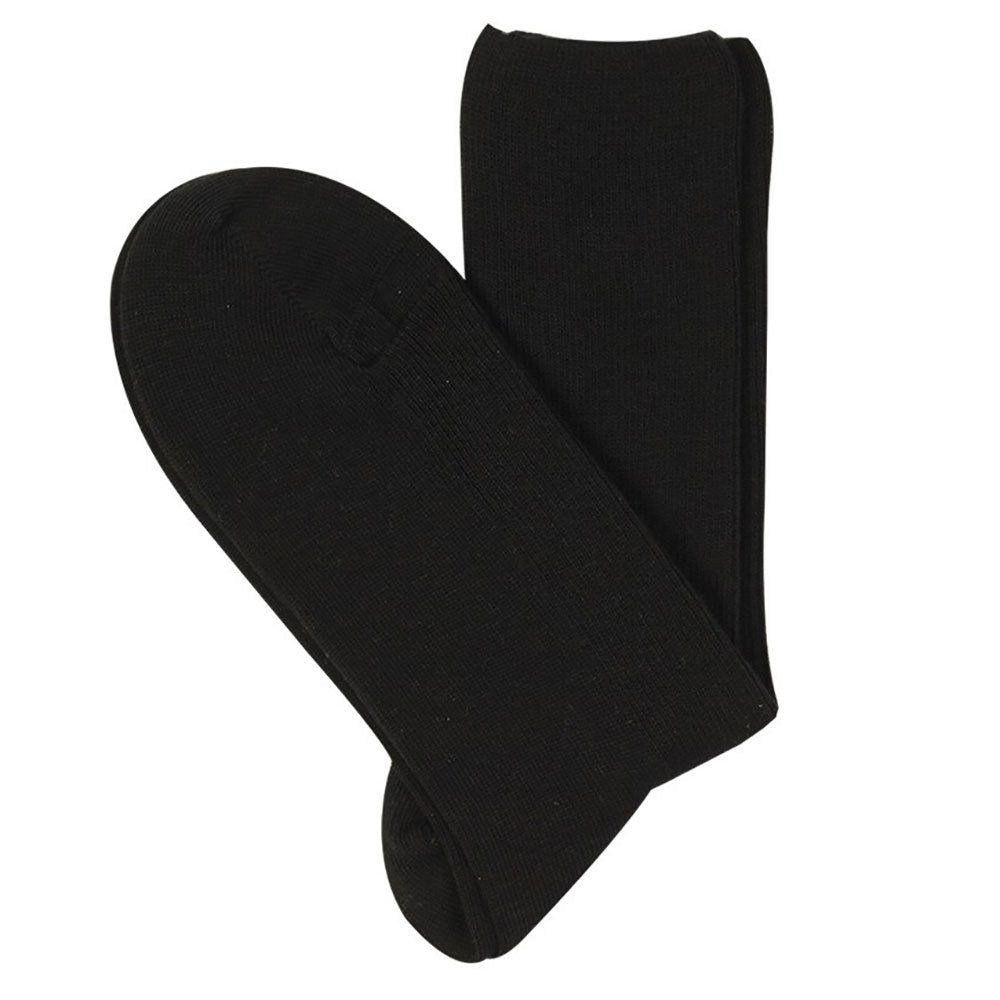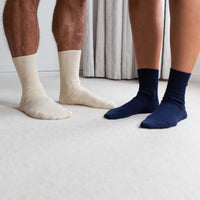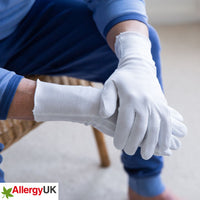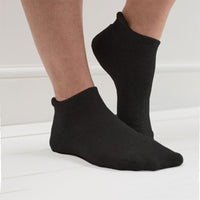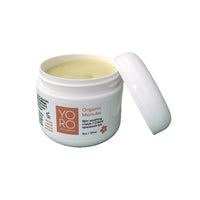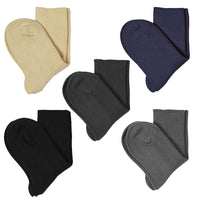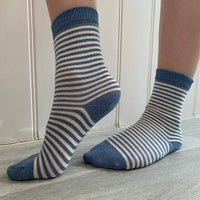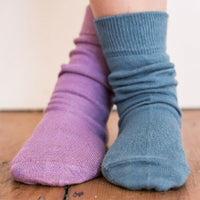
Life's an itch
Life's an itch
She has to sleep with her parents pinning her down. An exhausted Pete May on the nightmare of living with his daughter's acute eczema.
No wonder the goings-on at Camp X-Ray sounded familiar - I have been operating a similar regime with Nell, my 15-month-old daughter, for most of her life. She sleeps in a gloved suit and is routinely held down, one arm by each parent, throughout the night. All she really needs now is a pair of padded, blacked-out goggles.
Nell has atopic eczema, a skin condition now affecting one in five infants, compared with one in 30 half a century ago. Life's an itch, and a team of dermatologists at Sheffield University has just cited the increased number of baths we take with associated soaps, shampoos and gels as one of the main reasons for the increase. The detergents break down the fats on the skin's surface and a bit like a 20-year-old Gore-Tex jacket, it loses its waterproof quality and allows allergens and irritants to seep in.
The word eczema is Greek and means "to boil or flow out" and looking at my daughter's weeping, blotched skin, this has a poetic aptness. The eczema appeared when she was two months old. It was then that Nell's three-year-old sister, Lola, started referring to Nell as "Poo Poo Scratcherhead". It summed up her two main activities pretty well.
Nell's skin becomes red, dry and itchy, then blisters and weeps. If left alone or ungloved she scratches till she draws blood - hence Operation Pindown. If we turn away for a second, those super-sharp kiddie talons, however short they might be cut, can cause wounds that made her look as if she has just had a run-in with Edward Scissorhands. These wounds have frequently become infected, causing her to need steroid creams and oral antibiotics which leave us agonising about her long-term health.
Atopic eczema starts in early childhood, can last for many years, and is often associated with asthma and hay fever. There is evidence that genetic factors contribute to eczema (atopic means "inherited" and, in our case, Nell's mother still suffers from mild eczema) and a more controversial theory that allergy triggers such as dust-mite faeces, pollens, animal hairs and dairy products can cause the problem. Pollution is also suggested as a contributory factor. But perhaps the most accurate picture came from our doctor. When I asked him what caused eczema, he sighed and said: "If I knew that I would be a millionaire."
My daughter's night-time kit mainly consists of an all-in-one sleeping suit, with detachable mittens. During the day we at first improvised emergency gloves by placing socks on her hands, which she would remove with some success. Recently our lives have been improved by discovering Cotton Comfort's eczema mitten T-shirts with built-in mittens (although natural off white is not the most practical colour for a crawling child). In the bathroom there are enough chemicals to manufacture our own weapons of mass destruction - Fucidin H, emulsifying ointment, Oilatum Plus emollient, DiproBase, Balneum Plus, anti-histamine syrups, petroleum jelly, antibiotics.
Of course, there are children with far worse ailments. It is just the low-level, nightly sleep deprivation that gets you, along with the white noise of mittens rubbing on skin. We have not had an unbroken night's sleep for more than a year. Despite our efforts, Nell can still rub and rub through her mittens until her skin is raw.
Nell, who is happy and has a great sense of humour, even managed to burst a blood vessel in my eye when she resisted my anti-scratching efforts too strongly one night. Still, at least the mittens or gloves don't seem to be impairing her dexterity. Perhaps because her hands rarely see daylight, she seems remarkably skilful at performing various operations with them on and may grow up to be a surgeon.
Then there are the cures. As John Cleese put it in Clockwise, "It's not the despair, it's the hope!" Wherever we go people offer remedies such as Chinese herbs, homeopathy, that new wonder cream on BBC Watchdog, cranio-sacral therapy, kinesiology, aloe vera cream, Dead Sea salt, sunshine, African tree oil, oatmeal in old tights in the bath, dilithium crystals and Romulan cloaking devices.
We have tried most things. Dust-mite covers on the mattresses and pillows, not using washing powder, industrial vacuuming of the carpets, bathing and not bathing, endless lotions and steroid creams, turning the central heating off, opening windows at night, keeping her away from any dogs and cats. We would remove the carpets if we weren't in a rented house. We have cut dairy products out of Nell's diet and before weaning her, Nicola cut out all dairy foods and nuts from her own diet in case these triggered another scratching episode through her breast milk. These measures made no difference.
We must also be constantly on the look-out for the cigarette smoke and aerosol sprays that irritate Nell's skin. Where we live, it takes nearly a year to get a hospital appointment with a skin specialist. When it finally arrives, all the experts say is that you have to learn to live with the condition. They prescribe a coal-tar cream which we haven't used because of its possible carcinogenic effect. Even worse, I have become an eczema anorak, awaiting the arrival of Exchange, the National Eczema Society's magazine, with the zeal once reserved for the arrival of football and lad magazines. We have even asked for advice on an eczema website - only no one has ever replied, presumably because they are not getting enough sleep either.
In a recent issue of Exchange, the actress Claire Sweeney wrote about her eczema. Her success gives hope that eczema need not hold you back in life; although reading the list of careers that could cause problems for eczema sufferers due to substances that might trigger an attack - hairdressing, catering, nursing, gardening, engineering, animal handling, building, the armed forces - made me wonder what effect such restraints might have on Nell in later life.
Perhaps Nell's eczema is easing slightly in her second year, and many children do get better over time. Now that she can lie on her side she sleeps slightly better, but only as long as she has one arm wedged under my neck and the other around my head. We tell friends, "We had a really good night's sleep last night, she only woke up four times", and wonder why they think we are deranged.
And should we wish to have any more non eczema-rated children the solution is now clear, says the team at Sheffield University. Before the child is born, we should avoid bubble baths, shower gels, fitted carpets, baby wipes and pets, study the tea leaves and conceive at the end of a month in which five planets align. Then our baby just might have a clear-skinned, pain-free future.
For further information ring the National Eczema Society hotline on 0800 448 0818 (1-4pm Mon-Fri) or visit www.eczema.org.
Written by Pete May for The Guardian - 23 May 2002.


